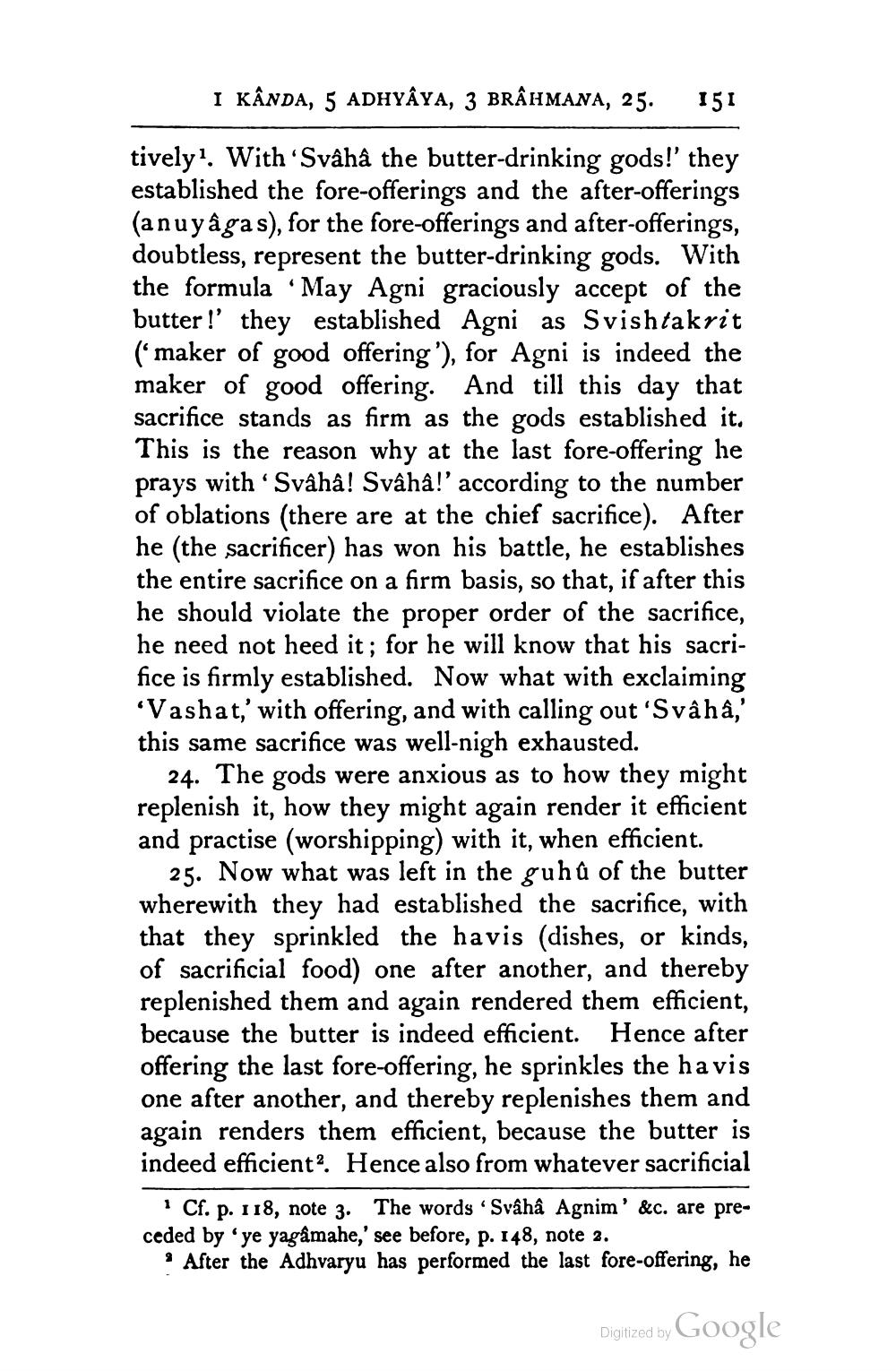________________
I KÂNDA, 5 ADHYAYA, 3 BRÂHMANA, 25.
151
tively!. With 'Svâhâ the butter-drinking gods! they established the fore-offerings and the after-offerings (anuyâgas), for the fore-offerings and after-offerings, doubtless, represent the butter-drinking gods. With the formula .May Agni graciously accept of the butter !' they established Agni as Svishtakrit (maker of good offering '), for Agni is indeed the maker of good offering. And till this day that sacrifice stands as firm as the gods established it. This is the reason why at the last fore-offering he prays with 'Svâhâ! Svâhâ!' according to the number of oblations (there are at the chief sacrifice). After he (the sacrificer) has won his battle, he establishes the entire sacrifice on a firm basis, so that, if after this he should violate the proper order of the sacrifice, he need not heed it; for he will know that his sacrifice is firmly established. Now what with exclaiming 'Vashat,' with offering, and with calling out 'Svâhâ;' this same sacrifice was well-nigh exhausted.
24. The gods were anxious as to how they might replenish it, how they might again render it efficient and practise (worshipping) with it, when efficient.
25. Now what was left in the guh û of the butter wherewith they had established the sacrifice, with that they sprinkled the havis (dishes, or kinds, of sacrificial food) one after another, and thereby replenished them and again rendered them efficient, because the butter is indeed efficient. Hence after offering the last fore-offering, he sprinkles the ha vis one after another, and thereby replenishes them and again renders them efficient, because the butter is indeed efficient?. Hence also from whatever sacrificial
1 Cf. p. 118, note 3. The words 'Svâhâ Agnim' &c. are preceded by 'ye yagâmahe,' see before, p. 148, note 2.
After the Adhvaryu has performed the last fore-offering, he
Digitized by Google




